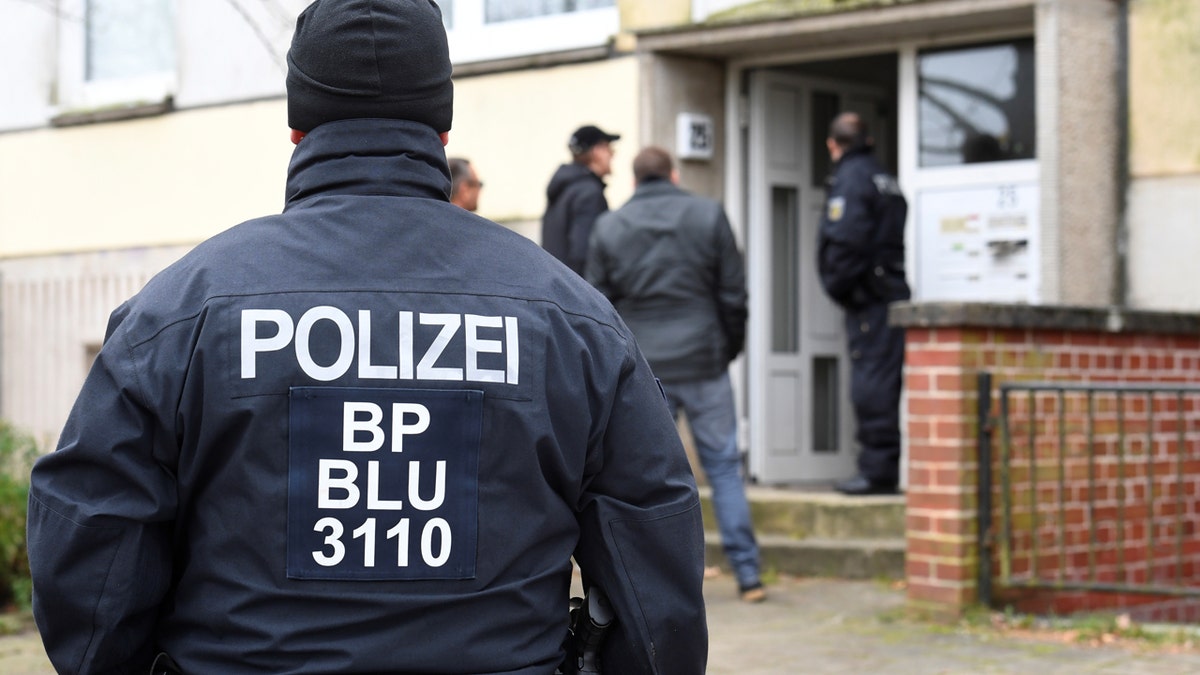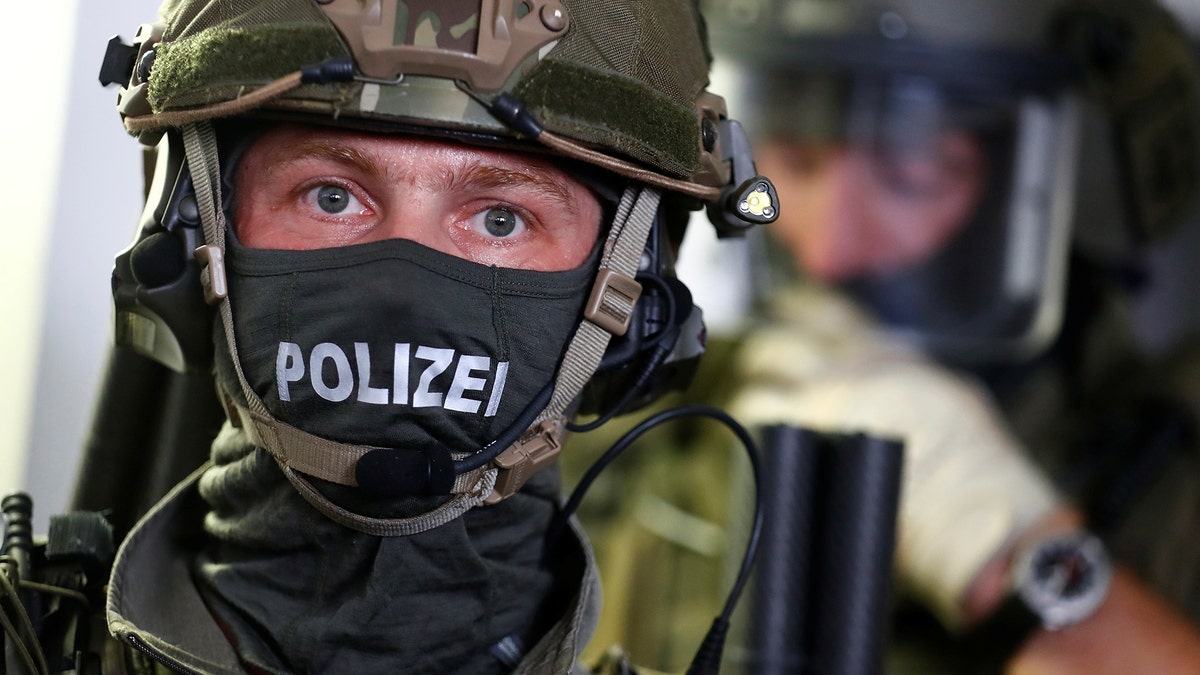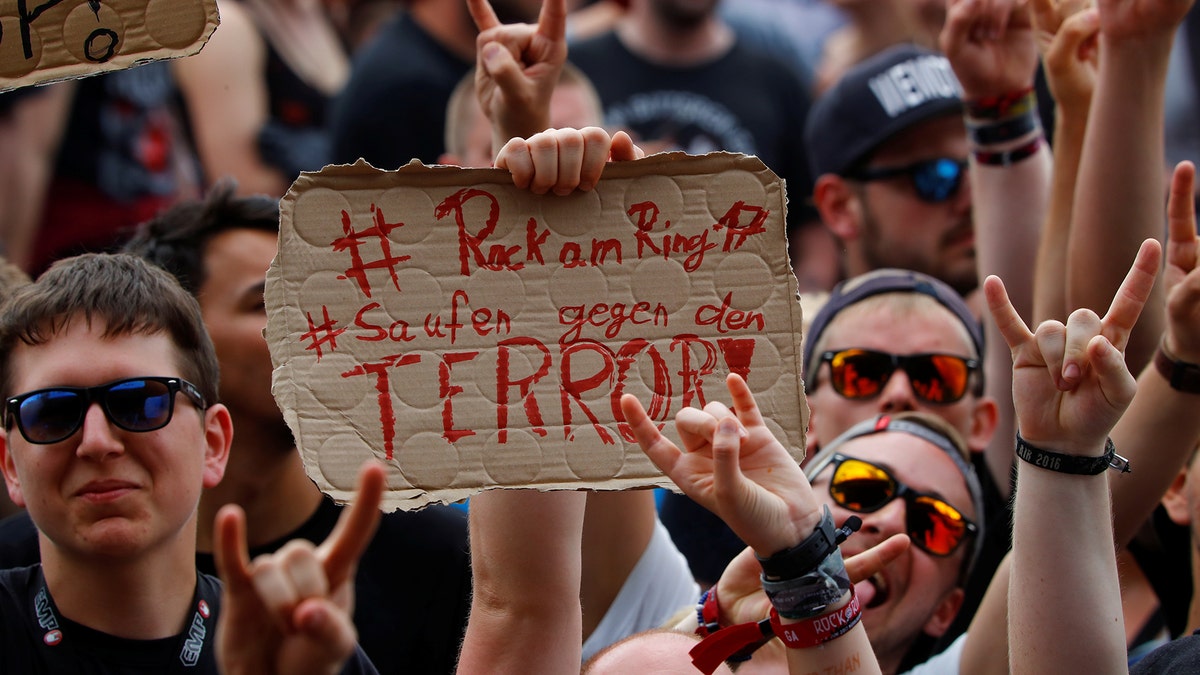
Police conduct a raid in front of a residential building in Schwerin, Germany in October. (Reuters)
The number of terror-related investigations opened by German police this year jumped from 250 to 1,000 the past year – a dramatic increase in a country still reeling from a string of deadly terrorism attacks.
During a recent broadcast on German television, Holger Munch, director of the Federal German Police, said the terror threat is high and will likely stay that way for years to come.
According to Maximilian Kall, spokesperson for the Ministry of Justice, 85 percent of the cases are connected to radical Islamists.
This year’s jump in terror-related investigations reflects the fear that some of the 890 Germans who joined ISIS in Syria and Iraq may be returning to Germany now that ISIS has lost virtually all the territory it occupied. With an Islamic caliphate no longer feasible, the military mission in the Middle East is less attractive and is being redirected to terrorist attacks in Europe.
German police are heavily engaged in surveillance and are gathering evidence that can be used in trials of suspected terrorists, or their supporters.

The number of terror-related investigations opened by German police this year jumped from 250 to 1,000 in 2016 – a dramatic increase in a country still reeling from a string of deadly terrorism attacks. (REUTERS)
“The rise in the numbers being investigated has proved to be a huge problem for the German court system because they have been flooded with cases over the past two years,” said Elmar Thevessen, a terrorist analyst for ZDF, a large public television network.
Many of the federal cases have been transferred to provincial courts in the 16 German lander (states) in order to hasten trials.
The returning ISIS fighters who are trained for combat and the use of explosives pose a serious threat. ISIS is also increasing its calls to sympathizers throughout the world, telling them to use trucks, cars, and knives if conventional weapons are not available.
Police estimate there may be as many as 1,000 people in Germany who are potentially dangerous and willing to commit attacks, according to Thevessen.
Chancellor Angela Merkel’s controversial open-door policy brought 1.5 million refugees from the Middle East into Germany between 2015 and 2016.
“There was chaos at the border and virtually no information about the real identity of the refugees and their countries of origin,” said Florian Flade, an expert on Islam at Die Welt, a center- right German daily newspaper.
Germany’s domestic intelligence agency, the Office for the Protection of the Constitution, or BfV, warned in 2016 that many unaccompanied adolescent refugees are susceptible to Jihadist propaganda, especially propaganda that’s spread on social media. They quickly self-radicalize and are prepared to obey orders to kill non-Muslims.

A festival goer holds up a sign that reads "drink against terror" as thousands cheer for a rock band at the open-air weekend "Rock am Ring" concert at Germany's Formula One race track Nuerburgring, Germany June 3, 2017. (REUTERS)
According to Flade, many of the single young men who were part of the refugee influx become marginalized. They don’t speak German, are slow to integrate, and have missed years of school because of the wars in Syria and Iraq.
The BfV report finds that “all attacks carried out in Germany in 2016 can be classified as part of the phenomenon of the individual jihad, which means that they were committed by lone perpetrators, or small groups.”
Fears that Islamic extremists have entered Germany with the refugee influx have helped fuel a xenophobic backlash against the refugees. This backlash is having a significant political impact.
The Alternative for Germany (AFD), a new far-right political party, had astonishing success in the national election on September 24, gaining 6 million votes and 94 seats in the Bundestag (parliament). The vehemently anti-refugee, nativist party, never before represented in the Bundestag, has now become the party with the third-largest representation. The increasing terrorist threat will likely add to its momentum.
Experts predict more, and bigger, terrorist attacks in Germany. According to Thevessen, chemicals may be used in future attacks because chemicals have been readily available in Syria and Iraq.
“Authorities believe we may see big terrorist attacks in Europe within the next two years,” he said.
Munch, the director of the Federal German Police, warned that the threat goes well beyond Germany.
“This is not just a German national problem, it is a European one,” said Munch. “Terrorist threats in Germany are a potential threat to all of Europe.”








































